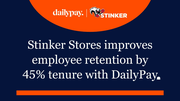News
Study: Millennials aren't shopping like older parent generations
May 1, 2018
As millennials move into the age of having children, their shopping habits and activities are a bit different than previous consumer generations.
The National Retail Federation's quarterly Consumer View report reveals millennial-age parents, in their late 20s and early 30s, rely heavily on smartphones for product research and determining product availability and are more inclined to provide feedback after purchase, whether through online engagement or interacting with a customer associate.
"The millennial generation has at turns confounded, inspired and challenged researchers and analysts with their spending habits," NRF Director of Retail and Consumer Insights Katherine Cullen said in a press release on the study. "As many millennials move into parenthood, we are beginning to see how their expectations and shopping preferences compare with those of previous generations. Whether it's using a subscription service to make sure diapers don't run out or going online to research the best crib or car seat, millennials shop differently than other parents."
The study found 78 percent use phones to research products (compared with 58 percent of other parents) and 75 percent to check prices or availability (also compared with 58 percent). Nearly three quarters, 71 percent, use their smartphone to pay at checkout or place an order (51 percent). In addition, 71 percent will leave a review, process a return or chat with customer service after purchasing, compared with 43 percent of other parents.
"To keep parents of any generation happy, brands and retailers must deliver on both price and quality," Cullen said in the release. "But millennials are very concerned about good customer services and are twice as likely to back out of a purchase for lack of it. For millennials, service ranks ahead of convenience, selection and loyalty programs."
When it comes to loyalty millennial-age parents are more likely to stick with a brand as the report reveals 49 percent remain loyal to a brand despite cheaper options, compared with 30 percent of other parents.
The study polled 3,002 U.S. adult consumers 18 or older between January 30 and February 18.
 ChatGPT
ChatGPT Grok
Grok Perplexity
Perplexity Claude
Claude




